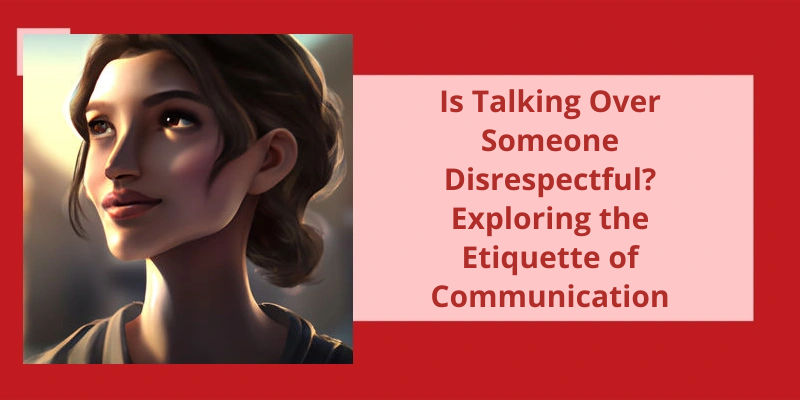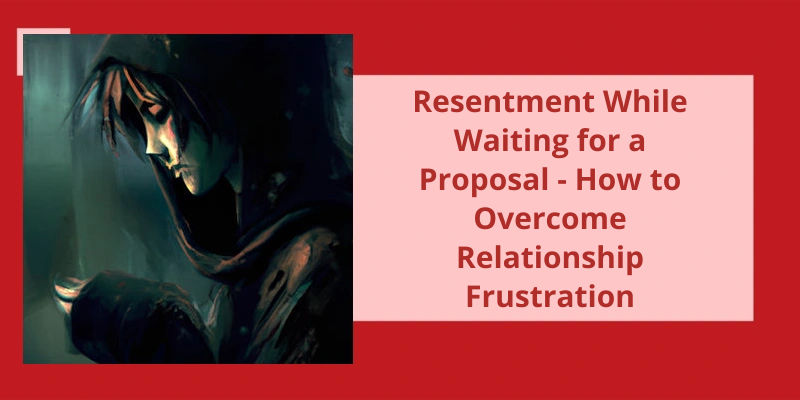Communication is a key aspect of human interaction, but what happens when someone decides to talk over another person? Is it considered disrespectful? It’s common knowledge that interrupting someone in the middle of their thoughts can be considered rude, but why exactly is that the case? When we talk over someone, we’re essentially communicating that our ideas, wants, and needs are more important than theirs. Interrupting someone shows a lack of respect for their thoughts and can shut down the conversation altogether. However, there are situations where interrupting can be seen as a sign of engagement, particularly within some cultural groups. So, is talking over someone always disrespectful? Let's explore this topic in more detail.
What Does It Mean When You Talk Over People?
However, when one talks over other people, it can be perceived as disrespectful or rude. It may even come across as an attempt to dominate the conversation, disregarding the thoughts or opinions of others. This behavior can create an environment where others feel like they aren’t being heard or valued, which can ultimately damage and potentially the relationships.
There are a few reasons why someone might talk over people. One of the most common reasons is simply a lack of awareness of others. People who talk over others often don’t realize they’re doing it, or they may not understand the impact their behavior is having on others. They may be focused on getting their point across and not realize that they’re interrupting others.
Whatever the reason, talking over people isn’t a productive or healthy communication style. It can lead to misunderstandings, hurt feelings, and damaged relationships. If you find yourself talking over others often, it may be helpful to try and increase your self-awareness and empathy. Taking a moment to reflect on your behavior and how it affects others can help you identify areas where you can improve. Additionally, focusing on active listening and allowing others to finish their thoughts before responding can help foster a more positive and productive communication style.
Ultimately, effective communication involves not only expressing our own thoughts and feelings but also actively listening and considering the perspectives of others. Practicing patience, understanding, and empathy can help us to create stronger connections with the people around us and improve our overall communication skills. So, next time you find yourself about to talk over someone, pause, listen, and then respond. You might be surprised at how much more productive and respectful the conversation becomes.
It can be frustrating when you’re trying to have a conversation and someone constantly interrupts you or talks over you. This behavior isn’t uncommon and is often referred to as chronic interrupting. In some cases, the person may also exhibit conversational narcissism, meaning they continually shift the conversation back to themselves. Let’s explore more about these behaviors and how to deal with them.
What Do You Call a Person Who Talks Over You?
When someone talks over you, it can be frustrating and disrespectful. It can be difficult to get your point across and the person talking over you isn’t showing that they’re interested in what you’ve to say. This type of behavior is seen a lot in conversations where people are trying to assert power or control over others. In certain situations, the person talking over you might not even be aware that they’re doing it. However, for people who’re sensitive to this type of behavior, it can be a real annoyance.
Interrupting someone on a regular basis is a form of verbal domination. People who interrupt others might not realize what they’re doing, but it tends to come across as a lack of respect towards the other person. It can be hard to get a word in when someone is constantly interrupting, and this can lead to feelings of frustration and anger. Interrupting can also be seen as a way of asserting ones authority or dominance over others. Some people do this to feel more powerful in a conversation, or just because they like to talk.
Conversational narcissism is a behavior where someone turns the topic of conversation onto themselves. This can be frustrating for others, as they’re left feeling like they aren’t being heard or understood. They might be unaware of their own behavior, or just enjoy talking about themselves. This type of behavior can really hijack a conversation and make it more difficult for others to engage.
When someone constantly changes the subject to talk about themselves, it’s known as a form of attention-seeking behavior. This person may not be aware of their own behavior, or might do it deliberately to gain attention. For example, if someone is feeling left out of a conversation, they might change the subject to something that they know more about in order to feel included.
All in all, when it comes to conversations, people should try to be mindful of their own behavior. It’s important to be respectful and attentive towards others, rather than just focusing on yourself. If someone is talking over you or interrupting you, there are ways to assert yourself without being aggressive or confrontational. By being self-aware and striving to be a better listener and communicator, we can all build better relationships and have more productive conversations.
How to Deal With Someone Who Talks Over You
- Set boundaries and communicate assertively
- Be confident in your point of view
- Stay calm and composed
- Redirect the conversation back to your point
- Use non-verbal cues to show disapproval
- Avoid interrupting the other person
- Agree to disagree if necessary
- Practice active listening
- Find common ground
- Consider seeking outside help or mediation
Source: The Psychology of Interrupting: How to Deal Cope
It can be frustrating to have someone talk over you during a conversation. However, there are effective ways to address this issue without causing confrontation. Communication expert, Lynn Bausch, suggests finding a phrase that works for you and avoiding phrases that may escalate the situation.
What Do You Say When Someone Is Talking Over You?
When someone is talking over you, it can be frustrating and feel like your voice isn’t being heard. However, it’s important to handle the situation calmly and respectfully. One approach is to simply pause and let the person finish their thought before continuing the conversation. This shows that you’re willing to listen to their perspective, but also asserts that your thoughts are equally important.
If the person continues to talk over you, it might be helpful to kindly and assertively ask for a turn to speak. This could be done by saying something like, “Excuse me, Id like to share my thoughts on this topic as well.”. This acknowledges the other persons contribution, but also reminds them that there are multiple viewpoints to consider.
Another tactic is to redirect the conversation back to your point by saying something like, “Thats an interesting perspective, but let me share why I see it differently.”. This lets the other person know that their opinion has been heard, but also asserts that you’ve a distinctive perspective to add.
It’s important to remember that communicating effectively is a two-way street. When someone is talking over you, it can be frustrating, but it’s important to stay calm and respectful. By finding and using a phrase that works for you, you can assert your voice in a constructive way and contribute to a productive conversation.
Ultimately, the key to addressing someone who talks over you is to respect both your own and the other persons opinions. By acknowledging their perspective and politely asserting yours, you can work towards a meaningful and respectful conversation. It’s important to approach these situations with an open mind and a willingness to listen, while also being clear about the value of your own voice. Communication is essential to human interaction, and learning how to navigate conversations in a positive way can help create more productive and rewarding relationships.
The Psychological Effects of Someone Talking Over You and How to Overcome Them
Being talked over has a negative psychological impact on individuals. It can make them feel less valued and lead to self-doubt and anxiety. However, one can overcome this by setting boundaries, practicing active listening, and initiating assertiveness tactics to ensure that their voice is heard.
Conclusion
However, when one person consistently dominates the conversation and talks over others, it can create a power dynamic that suggests that their ideas, thoughts, and opinions are more important than others. This can undermine the value and contribution of other individuals and lead to feelings of exclusion and frustration. In order to cultivate a respectful and inclusive environment, it’s important to be mindful of our communication styles and engage in active listening. So, next time you find yourself tempted to talk over someone, take a moment to pause and truly listen to what they’ve to say.






